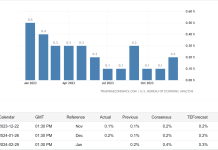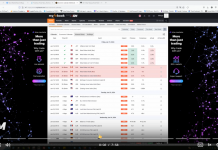 Following the referendum this weekend, the regional government of Catalonia has called for a general demonstration on Tuesday. The more radical members of the regional government have called for a unilateral declaration of independence immediately after that demonstration. Will the Catalonian government follow this path, and, if so, what will be the response of the central government and the main political parties?
Following the referendum this weekend, the regional government of Catalonia has called for a general demonstration on Tuesday. The more radical members of the regional government have called for a unilateral declaration of independence immediately after that demonstration. Will the Catalonian government follow this path, and, if so, what will be the response of the central government and the main political parties?
Barclays analytics see two main scenarios:
1) The Catalonia government refrains from unilaterally declaring independence, as this could be perceived by the international community as a further escalation of the conflict. Ada Colau, the mayor of Barcelona, supports this approach, together with other regional leaders. With the support of 38% of the Catalans in this weekend’s referendum (and fewer than 50% of the voters according to all recent polls, including those conducted by Catalan institutions such as CEO on 21 July 2017), unilateral independence would be a difficult sell internationally; it would likely find very little support externally, as has been the case thus far. Moreover, this step would be viewed as illegal, and in contravention of the Spanish constitution.
This path could also lead to regional elections within the next couple of months, in which parties in favour of independence could run on a joint platform in the hope of achieving more than 50% of the popular vote. This could give the “independence front” increasing legitimacy. It could also potentially provide greater bargaining power in negotiations with the central government of Spain, as well greater international support.
In this scenario, the central government is likely to avoid triggering Article 155 (this article allows the central government to take necessary measures to force a regional government to obey the Constitution and the national laws, and authorises the government to issue instructions to all the authorities in the regions), even if it is very likely to make sure that those who have breached the law and acted in opposition to the Constitution will face prosecution.
Get similar commentaries daily. Check FxWatcher>>>
2) The Catalonian government unilaterally declares independence this week. This would likely be met with the triggering of Article 155 by the government. The central government could begin by taking over control of regional police and fiscal/financial matters, potentially maintaining control until the next regional or general election or new negotiators come to the table.
This path could lead to further protests and potentially more street clashes with the police. We would also expect it to result in greater volatility on the financial markets. In this scenario, PM Rajoy and the PP government may decide to forcefully defend the Constitution, a move which is likely to find support with voters in the rest of the regions. For this reason, in this scenario, it seems unlikely that the main opposition party, the Socialist PSOE, would trigger a near-term general election (ie, 2017 or early 2018). To be clear, our baseline remains for general elections to take place in 2019, even if increased uncertainty could trigger early general elections, possibly by H2 2018.

At the same time, PSOE would be in a delicate position, given that on the one hand it has condemned the violence over the weekend but on the other has firmly resisted the separatists’ unconstitutional threat. In recent polls, PSOE, under the new leadership of Pedro Sanchez, won back some 500k votes from Podemos (Metroscopia, Figure 1). However, its position on the Catalonia issue could determine whether this trend continues or reverses.

















